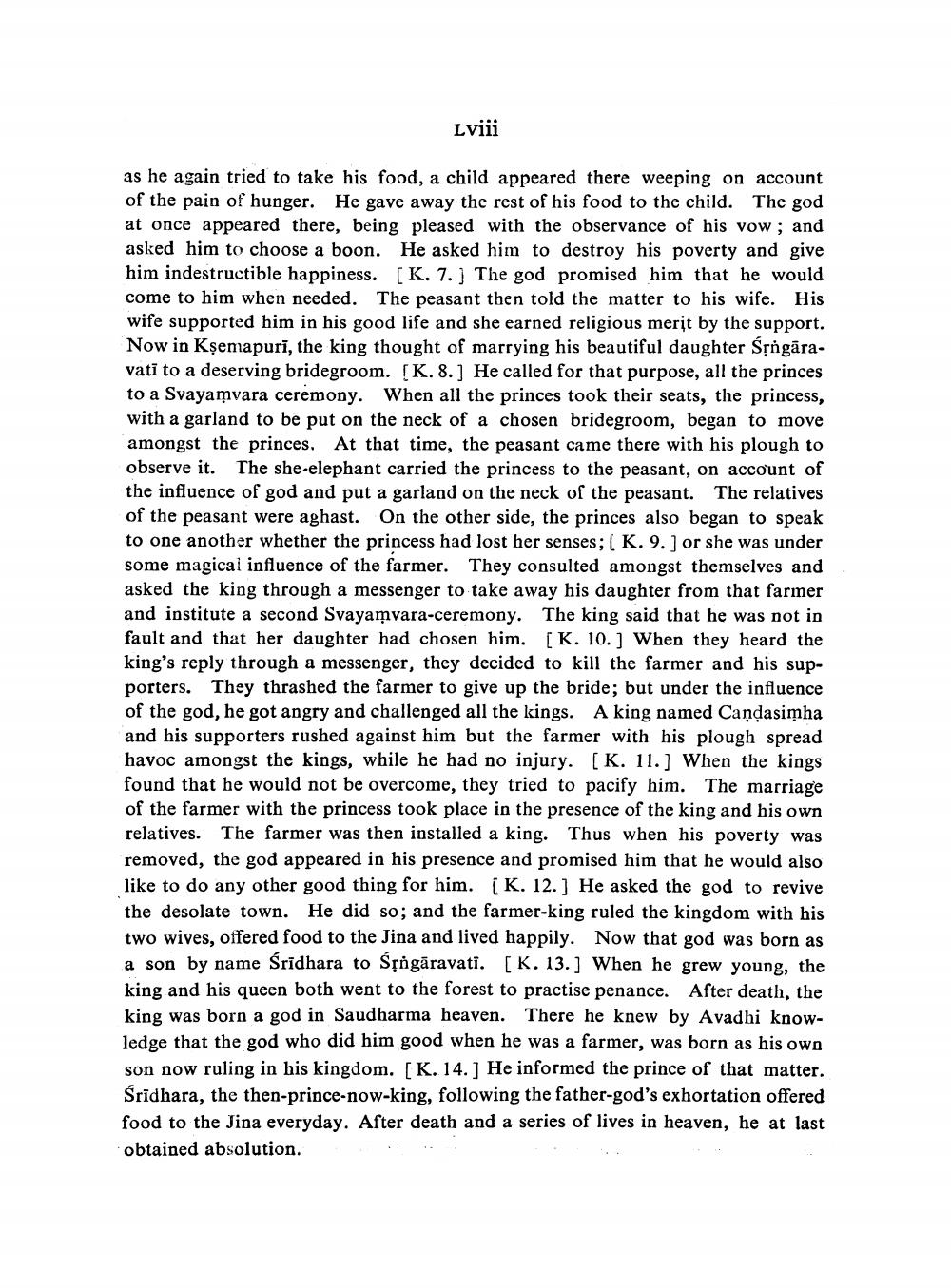________________
Lviii
as he again tried to take his food, a child appeared there weeping on account of the pain of hunger. He gave away the rest of his food to the child. The god at once appeared there, being pleased with the observance of his vow; and asked him to choose a boon. He asked him to destroy his poverty and give him indestructible happiness. [K. 7.) The god promised him that he would come to him when needed. The peasant then told the matter to his wife. His wife supported him in his good life and she earned religious merit by the support. Now in Ksemapuri, the king thought of marrying his beautiful daughter Śrngäravati to a deserving bridegroom. [K.8.] He called for that purpose, all the princes to a Svayamvara ceremony. When all the princes took their seats, the princess, with a garland to be put on the neck of a chosen bridegroom, began to move amongst the princes. At that time, the peasant came there with his plough to observe it. The she-elephant carried the princess to the peasant, on account of the influence of god and put a garland on the neck of the peasant. The relatives of the peasant were aghast. On the other side, the princes also began to speak to one another whether the princess had lost her senses; ( K. 9.] or she was under some magical influence of the farmer. They consulted amongst themselves and asked the king through a messenger to take away his daughter from that farmer and institute a second Svayamvara-ceremony. The king said that he was not in fault and that her daughter had chosen him. [K. 10.) When they heard the king's reply through a messenger, they decided to kill the farmer and his supporters. They thrashed the farmer to give up the bride; but under the influence of the god, he got angry and challenged all the kings. A king named Caņdasimha and his supporters rushed against him but the farmer with his plough spread havoc amongst the kings, while he had no injury. [K. 11.] When the kings found that he would not be overcome, they tried to pacify him. The marriage of the farmer with the princess took place in the presence of the king and his own relatives. The farmer was then installed a king. Thus when his poverty was removed, the god appeared in his presence and promised him that he would also like to do any other good thing for him. (K. 12. ] He asked the god to revive the desolate town. He did so; and the farmer-king ruled the kingdom with his two wives, offered food to the Jina and lived happily. Now that god was born as a son by name Śrīdhara to Sțngāravati. [K. 13.) When he grew young, the king and his queen both went to the forest to practise penance. After death, the king was born a god in Saudharma heaven. There he knew by Avadhi knowledge that the god who did him good when he was a farmer, was born as his own son now ruling in his kingdom. [K. 14.] He informed the prince of that matter. Sridhara, the then-prince-now-king, following the father-god's exhortation offered food to the Jina everyday. After death and a series of lives in heaven, he at last obtained absolution.




